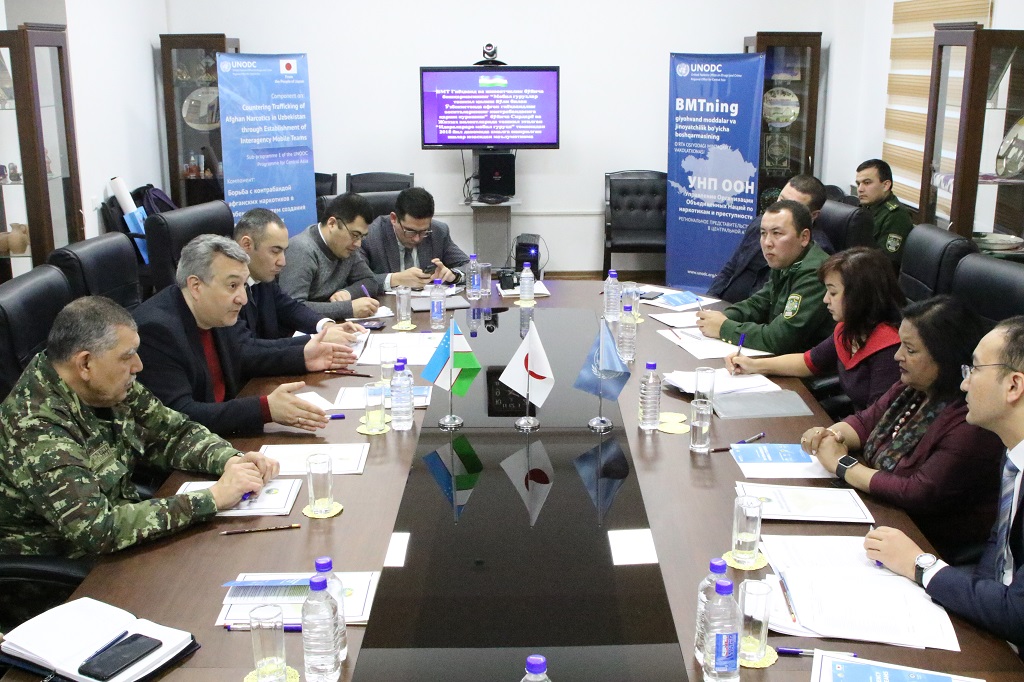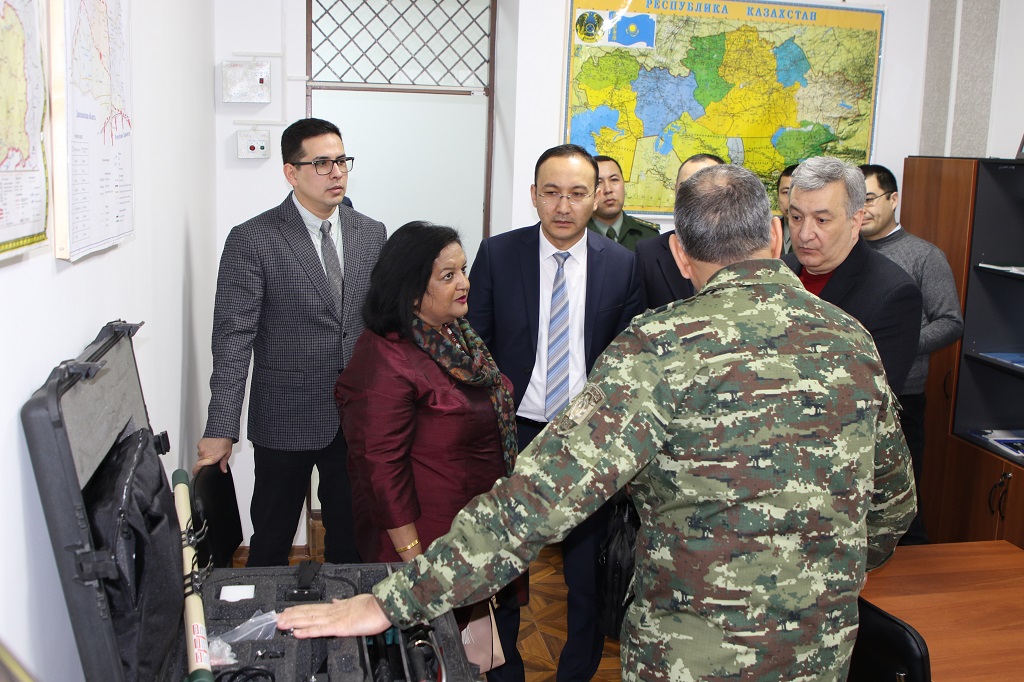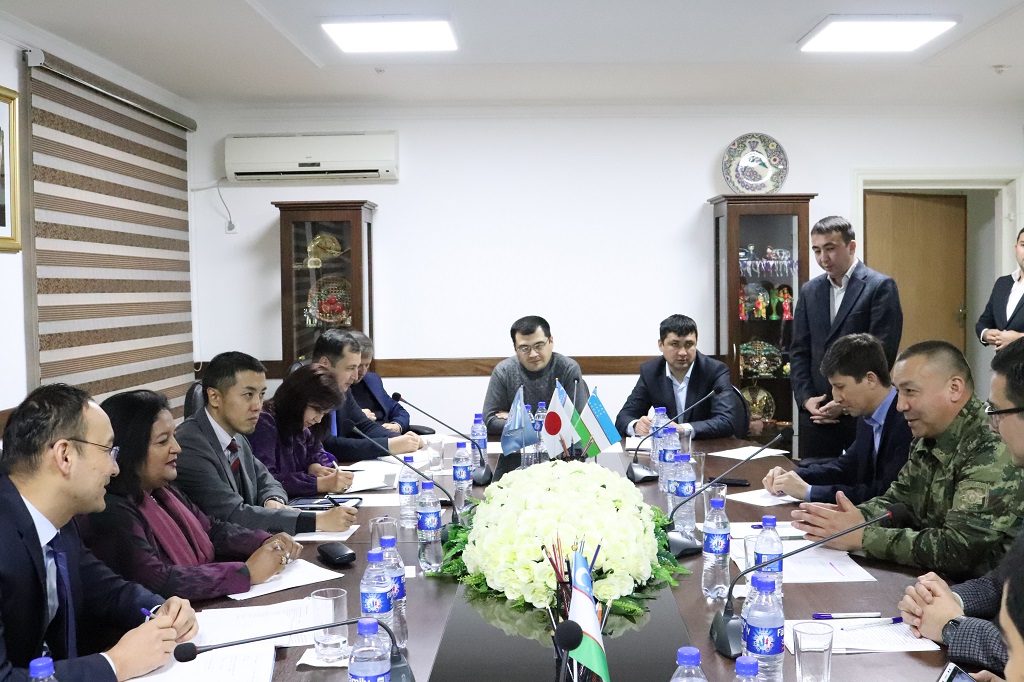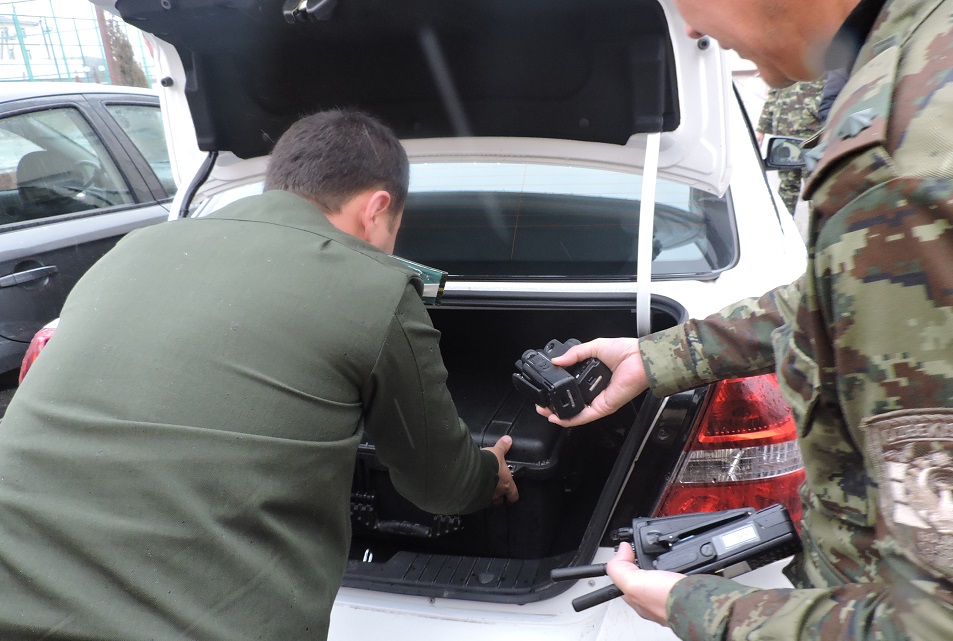 The initiative on establishing Interagency Mobile Teams (IMT) is a unique joint UNODC-Uzbekistan initiative, funded by Japanese Government, which employs comparative advantage and specifics of different law enforcement agencies. This collaboration contributes to more efficient joint work in countering drugs trafficked from Afghanistan through enhancement of inter-agency communication, coordination and cooperation.
The initiative on establishing Interagency Mobile Teams (IMT) is a unique joint UNODC-Uzbekistan initiative, funded by Japanese Government, which employs comparative advantage and specifics of different law enforcement agencies. This collaboration contributes to more efficient joint work in countering drugs trafficked from Afghanistan through enhancement of inter-agency communication, coordination and cooperation.
To witness how the involved agencies, State Customs Committee, Ministry of Internal Affairs, the State Security Service, and the National Centre Information-Analytical on Drug Control under the Cabinet of Ministers of Uzbekistan (NCDC), work together at operative level to achieve the goals of the initiative, the representatives of the national counterparts, the donor, Embassy of Japan in Uzbekistan, and UNODC Regional Office for Central Asia started a series of joint monitoring missions to six IMT deployment sites.
 The first two missions were conducted to Gulistan on 15 January and to Fergana on 16 January 2019. During the visits, the mission participants assessed overall effectiveness of the teams and implementation of the Standard Operating Procedures and learned about how the equipment, provided within the framework of the project is contributing to the productivity of the work done by IMTs. During the mission IMT officers presented the reports on joint operations, seizures, and demonstrated how current initiative have contributed to enhancement of inter-agency collaboration.
The first two missions were conducted to Gulistan on 15 January and to Fergana on 16 January 2019. During the visits, the mission participants assessed overall effectiveness of the teams and implementation of the Standard Operating Procedures and learned about how the equipment, provided within the framework of the project is contributing to the productivity of the work done by IMTs. During the mission IMT officers presented the reports on joint operations, seizures, and demonstrated how current initiative have contributed to enhancement of inter-agency collaboration.
"Drug trafficking from Afghanistan through the so-called Northern Route demonstrates the tendencies which prove the traffickers are exploring new routes. Taking into account this fact, the IMTs becomes extremely important activity for Uzbekistan and the Central Asian states in applying international best practices on combatting drugs", said Mr. Olim Narzullaev, Director of the NCDC during the mission.
 Ms. Ashita Mittal, UNODC Regional Representative for Central Asia noted that "The IMTs were officially launched in June 2018 when the equipment, including 30 vehicles and the machinery with most advanced technologies, was handed over to the IMTs. This mission provides us with the opportunity to meet the IMT officers at their duty stations and make sure the operating strategies are effective. The results of interagency cooperation demonstrated in the past short period is a good indication of the need for the IMTs."
Ms. Ashita Mittal, UNODC Regional Representative for Central Asia noted that "The IMTs were officially launched in June 2018 when the equipment, including 30 vehicles and the machinery with most advanced technologies, was handed over to the IMTs. This mission provides us with the opportunity to meet the IMT officers at their duty stations and make sure the operating strategies are effective. The results of interagency cooperation demonstrated in the past short period is a good indication of the need for the IMTs."
Mr. Iqbol Azimov, Head of Department of the Customs Committee in Ferghana Region acknowledged that "the IMT initiative proved itself to be effective. The trainings organized for IMT officers in Tashkent, Samarkand and Bukhara increased their capacity and practical skills in surveillance operations, profiling and other spheres." He also added that "the main achievement of the project is that the cooperation between the law enforcement agencies has increased greatly. Today, no any significant operation is conducted without IMT's participation. Fergana-based IMT has contributed significantly to the seizure operations since its establishment."
 Mr Ravshanjon Ruziev, the member of the IMT Operation Coordination Team from the State Customs Committee, noted "IMT officers are central to the operations on drug seizure being held in Uzbekistan. The IMTs lead the operations and attract additional officers from the regional departments of Security Services, Internal Affairs and Customs Committee. The agencies complement each other and make the operations more effective." Missions will be continued to other IMT sites in Termez, Nukus, Samarkand and Tashkent.
Mr Ravshanjon Ruziev, the member of the IMT Operation Coordination Team from the State Customs Committee, noted "IMT officers are central to the operations on drug seizure being held in Uzbekistan. The IMTs lead the operations and attract additional officers from the regional departments of Security Services, Internal Affairs and Customs Committee. The agencies complement each other and make the operations more effective." Missions will be continued to other IMT sites in Termez, Nukus, Samarkand and Tashkent.
The initiative on "Countering trafficking of Afghan narcotics in Uzbekistan through establishment of Interagency Mobile Teams" is implemented under Sub-Programme 1 of the UNODC Programme for Central Asia for 2015-2019 with financial support of the Government of Japan. The initiative aims to address the challenges of countering narcotics in Uzbekistan and facilitate enhancement of the relevant agencies in the country by providing technical assistance in establishment of Interagency Mobile Teams, creating required institutional and legal frameworks, procurement of equipment, delivering training courses and workshops.
For more information:
UNODC in Central Asia on Facebook
For more information, please contact
Ms. Dariya Kudabaeva,
Communication and External Relations Officer, UNODC ROCA,
E-mail: dariya.kudabaeva[at]un.org. Tel.: (78)-120-80-50